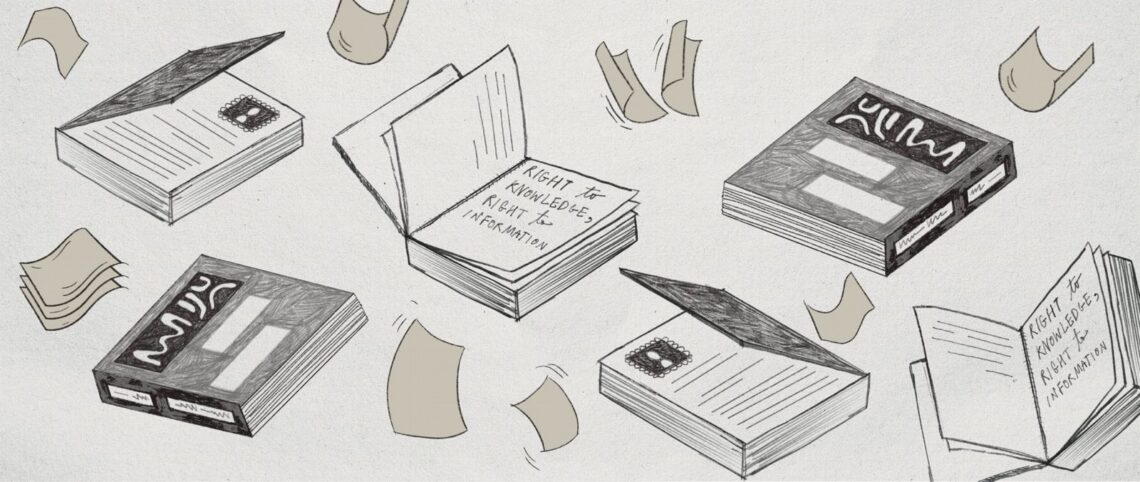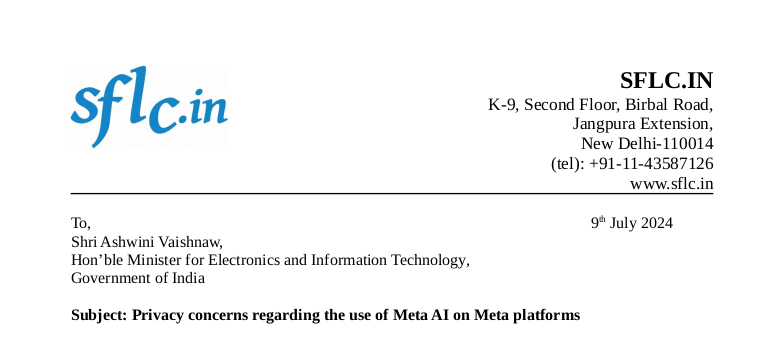The Free Speech Tracker is a crowd-sourced research project developed by SFLC.in. This initiative aims to meticulously monitor and document instances of free speech violations in India, as well as to scrutinize the laws that govern free speech within the country. The tracker is an aggregation of publicly accessible data, collected by dedicated volunteers affiliated with SFLC.in. These volunteers gather information from a variety of reliable sources, including news media and court orders. In addition to this, the project actively engages the public by sourcing information directly from citizens, ensuring that all data is rigorously verified for accuracy and relevance. This comprehensive approach allows for a detailed and up-to-date portrayal of the state of free speech in India.
The censorship of books has become an unfortunately common practice in India. Book bans, often enacted under Section 95 of the Code of Criminal Procedure (CrPC), pose a significant challenge to the freedom of expression and intellectual diversity. Section 96 of the CrPC does offer a provision for recourse by allowing individuals to petition the High Court to set aside the declaration of forfeiture.
This prevailing trend of pre-emptive book bans raises concerns about the stifling of creative expression, limiting the exchange of ideas, and curbing the public’s right to access a diverse range of perspectives. It is crucial to scrutinise and question the rationale behind such bans, promoting a discourse that upholds the principles of free speech and the importance of an open, informed society.
In this post, we will delve deeper into the specific issue of book banning in India, examining its causes, implications, and broader impact on society.
Books may be banned for several reasons:
- Political Sensitivities: Books that critique or challenge political ideologies or figures are often at risk. Governments may ban such books to suppress dissent or avoid political embarrassment.
- Religious and Cultural Sensitivities: India’s diverse religious and cultural landscape means that works perceived as offensive to a particular community can trigger calls for bans. Such actions often stem from a fear of inciting communal tensions.
- Historical Interpretations: Works that offer alternative perspectives on historical events or figures can become targets. There’s a tendency to protect established narratives, and books challenging these narratives can face censorship.
- Legal Mechanisms: Laws relating to sedition, defamation, and public order are sometimes used to justify book bans, albeit often in ways that conflict with the principles of free speech.
Implications of Book Banning
In the context of a vibrant and pluralistic democracy like India, the act of banning books is not a mere administrative or legal measure; it’s a significant socio-political action with far-reaching implications. Books are more than just compilations of words; they are vessels of ideas, narratives, and perspectives that contribute to the intellectual and cultural fabric of society. When a book is banned, it is not just the book that is suppressed, but the ideas and discourses it represents. This action, therefore, carries a weight of consequences that extends well beyond the immediate act of censorship. Let’s explore these implications in detail, focusing on how book banning impacts authors, the public discourse, and the broader societal landscape in India:
- Suppression of Ideas: Banning books is tantamount to erasing ideas. It prevents the dissemination of diverse thoughts and debates essential for a healthy democracy.
- Chilling Effect on Authors and Publishers: The threat of bans instills fear in authors and publishers, leading to self-censorship. This limits the range of topics that are written about, leaving important issues unexplored.
- Impact on Academic and Intellectual Freedom: Academic works are not immune to bans. This restricts scholarly research and debate, hampering intellectual growth and innovation.
- Legal and Ethical Challenges: Book bans often lead to legal battles, raising questions about the balance between free speech and other societal interests. They also pose ethical dilemmas about the role of the state in regulating information.
Broader Impact on Society
The ramifications of book banning in India transcend the immediate literary sphere, casting a long shadow over the broader societal landscape. In a nation celebrated for its diversity and democratic ethos, the act of banning books echoes profoundly, affecting not just the literary community but also the general populace. It is a phenomenon that has the potential to alter the very essence of public discourse, cultural diversity, and the collective consciousness of society. By examining the broader impact of book banning, we can gain insight into how these actions not only restrict access to diverse narratives and ideas but also shape the societal fabric in more subtle and pervasive ways. This exploration will help us understand the deep and lasting effects of such censorship on the societal ethos and democratic values of India.
- Erosion of Democratic Discourse: A society that cannot tolerate diverse opinions, especially in literature, risks eroding the very foundations of democratic discourse and debate.
- Cultural Homogenization: Banning books that represent minority or dissenting views can lead to a homogenized culture that lacks diversity and depth.
- International Perception: Frequent book bans can affect India’s image internationally as a free and open society, impacting its cultural and intellectual standing in the global community.
- Precedent for Further Censorship: Book bans set a precedent that can extend to other forms of media and expression, leading to a more widespread culture of censorship.
While book banning in India often arises from a desire to protect societal harmony or national interests, its consequences are far-reaching. It stifles intellectual growth, suppresses diversity of thought, and undermines the principles of a democratic society. Addressing this issue requires a careful balance between respecting sensitivities and protecting the fundamental right to free expression. The challenge lies in creating an environment where diverse ideas can be expressed and debated freely, without fear of censorship or retribution.



